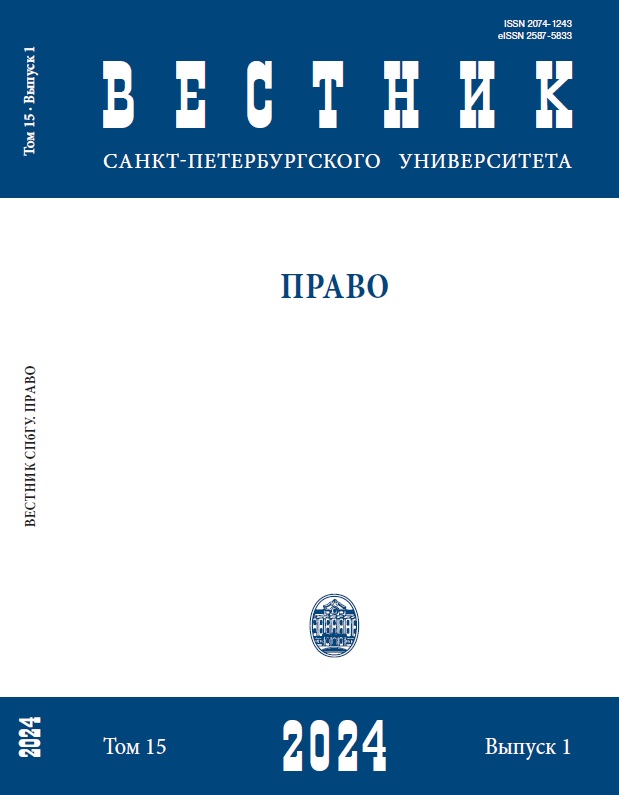The effects of the public joint stock companies’ conversion on partners and creditors of the company: A comparative study between the Emirati and the Jordanian laws
DOI:
https://doi.org/10.21638/spbu14.2024.115Аннотация
This paper aims to investigates the concept of conversion and will discuss the effects of conversion on the partners and the company’s creditors without discussing the effects of conversion for the converted company. This article compares two jurisdictions in middle east — United Arab Emirates (UAE), and Jordan. to find out how both jurisdictions have dealt with the effects of the public joint stock companies’ conversion on partners and creditors of the company. The article reached a set of findings, for example, it is not permissible for the transferred company to dissociate itself from the contracts that it had concluded before the transfer. The UAE legislator has done well when it explicitly stated that the rights of the partners or shareholders may not be violated towards the shareholders and creditors of the transferred company, holders of loan, bonds, or sukuk, and any interested party. The UAE legislative authority stipulated that the company’s conversion would be contingent upon objectors relinquishing their objections. Alternatively, if the court were to issue a final judgment rejecting the objection, or if the company were to promptly settle the debt, or provide substantial guarantees for future debt repayment, the conversion would proceed. Previous studies have been based on one jurisdiction, other than this study, which compared two jurisdictions in the middle east. Also, this article examined the recent commercial companies law issued in the United Arab Emirates. In addition, this article focused on one type of company, which is the public joint stock company.
Ключевые слова:
conversion, partners, creditors, public joint stock company, United Arab Emirates, Jordan
Скачивания
Библиографические ссылки
Загрузки
Опубликован
Как цитировать
Выпуск
Раздел
Лицензия
Статьи журнала «Вестник Санкт-Петербургского университета. Право» находятся в открытом доступе и распространяются в соответствии с условиями Лицензионного Договора с Санкт-Петербургским государственным университетом, который бесплатно предоставляет авторам неограниченное распространение и самостоятельное архивирование.






